5 Reasons to Buy the Google Home Mini (and 3 Reasons to Skip It)
The Google Home Mini is a worthwhile purchase, but it's not for everyone. Here are the pros and cons.
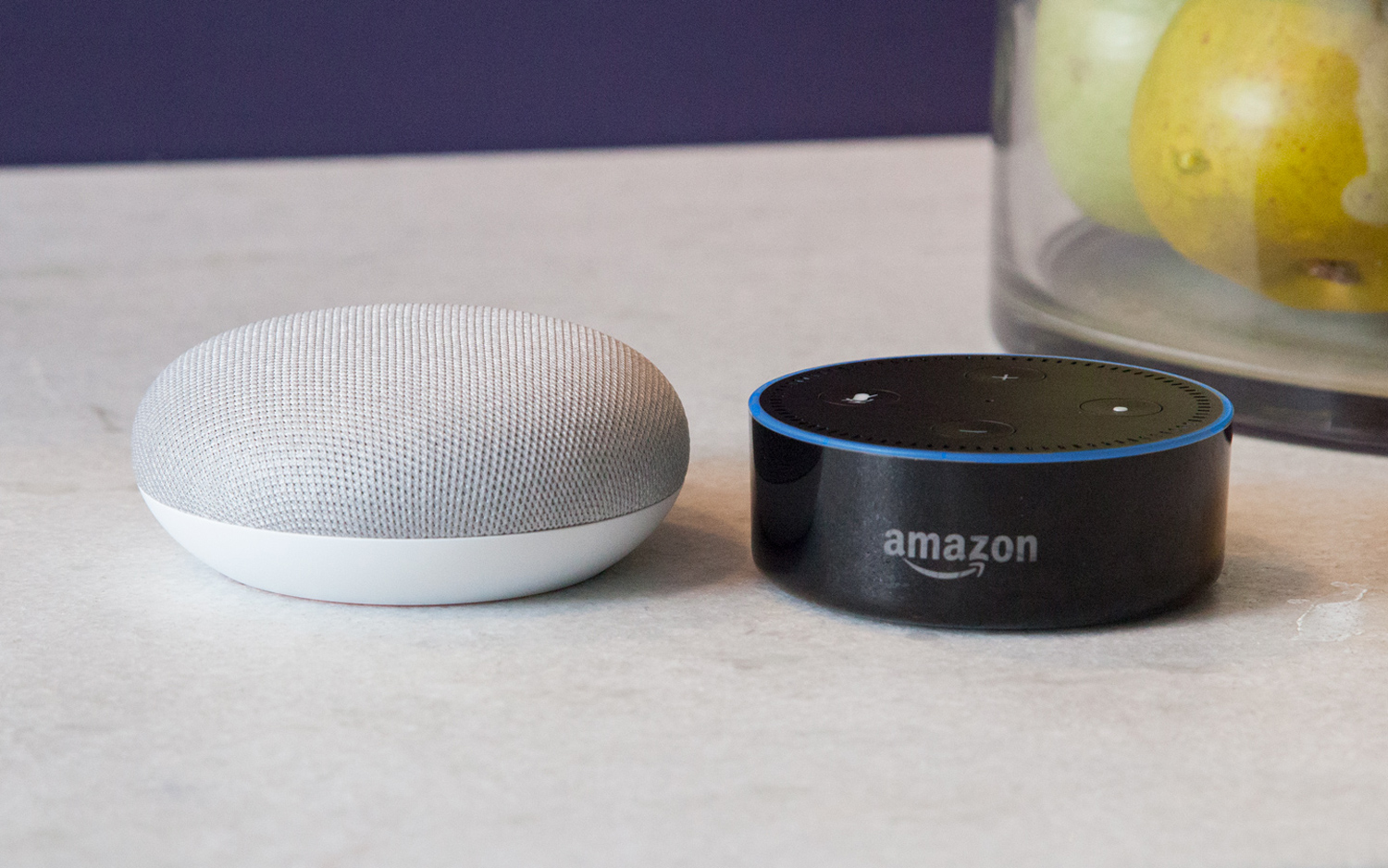
Size Isn't Everything
The Google Home Mini is a bite-size, puck-shaped smart speaker with surprisingly big sound. It's cheaper and more compact than its siblings in the Google Home lineup, and at a starting price of $49, it's a direct competitor of Amazon's puck-shaped Echo Dot.
If you're looking for a smart speaker that won't clutter up your desk, the Google Home Mini could be a great option. But for some users, the Echo Dot will come out on top. Here are five reasons to buy the Google Home Mini and three reasons to pass on it.
Credit: Tom’s Guide
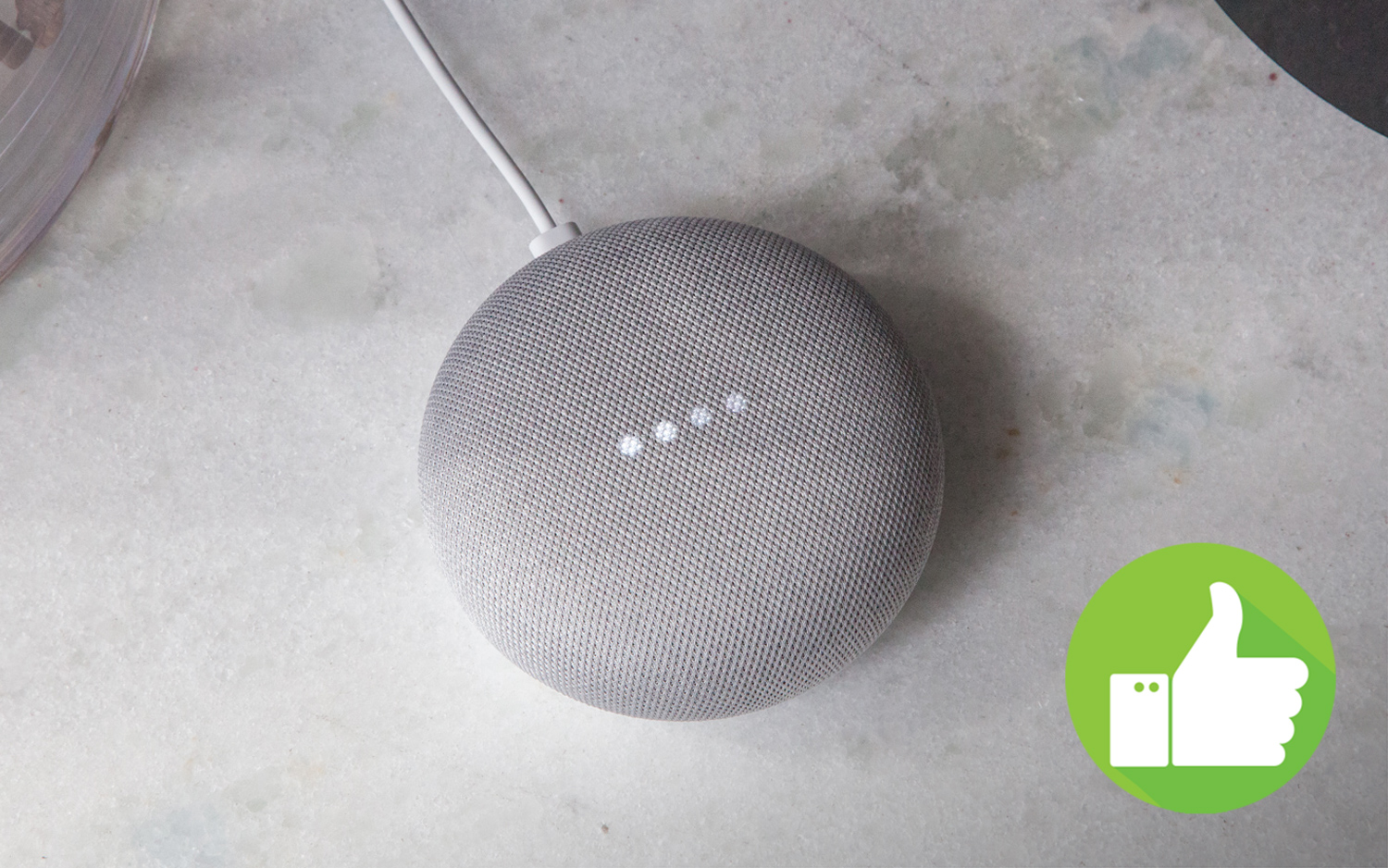
Adorable design
While many smart speakers aren't huge lookers, this one is sleek. Google's cheapest smart speaker will fit in much better on your desk than the oddly shaped Google Home and the clunky Google Home Max. Its small, round build with curved sides and fabric swath also make it a much friendlier-looking device than the black, utilitarian Echo Dot. The Home Mini comes in Chalk (grey), Charcoal (black) and Coral (pink) to match a variety of color schemes.
Credit: Tom’s Guide
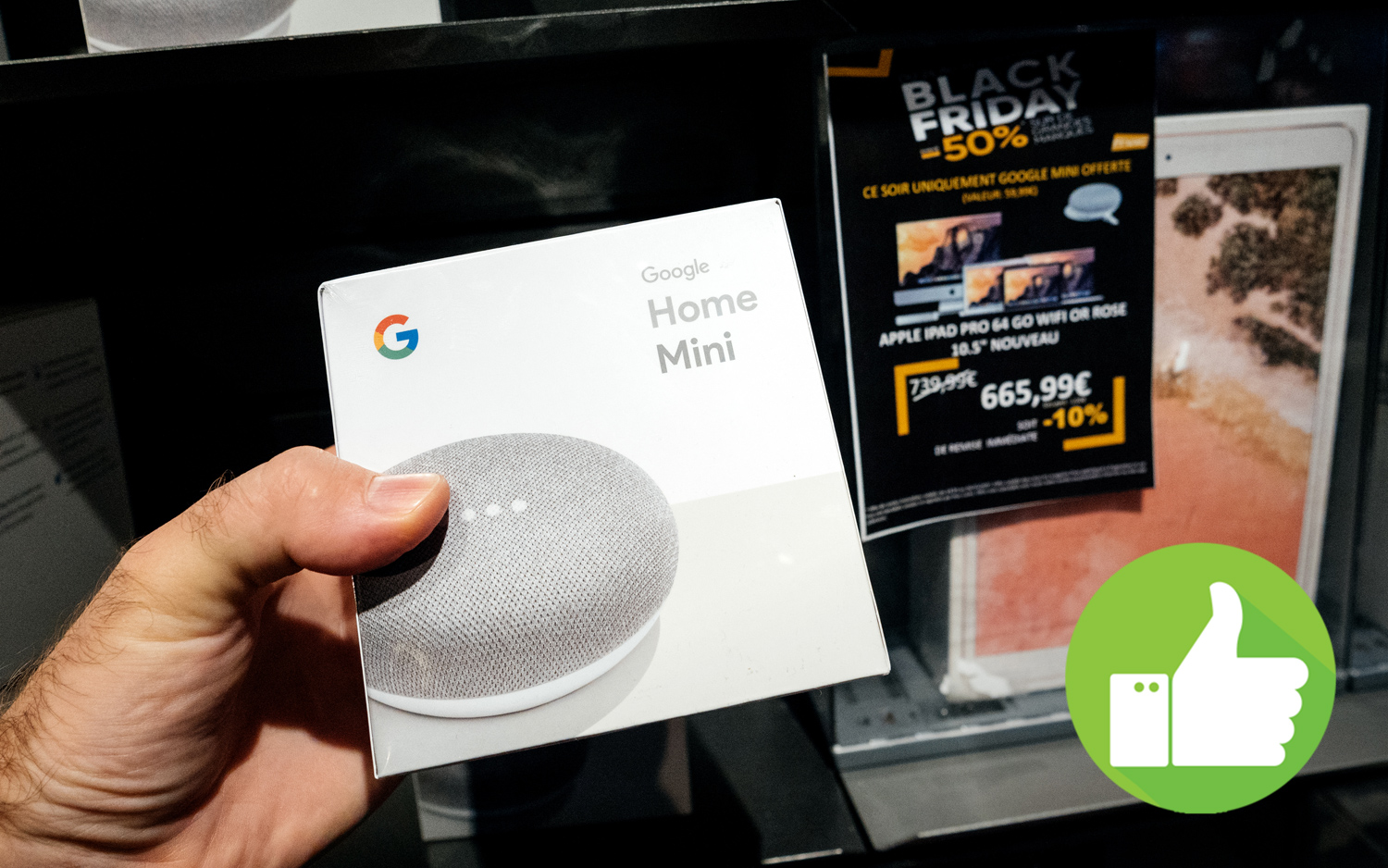
Affordable
The Home Mini is one of the cheapest smart speakers on the market, and the most affordable in the Google Home lineup. For $50, you get an attractive, high-quality speaker that can control your smart home, answer questions, tell you the weather, play games, help you order pizza and more. The Google Home, by contrast, starts at $129, and the Home Max retails for $399.
Credit: Shutterstock
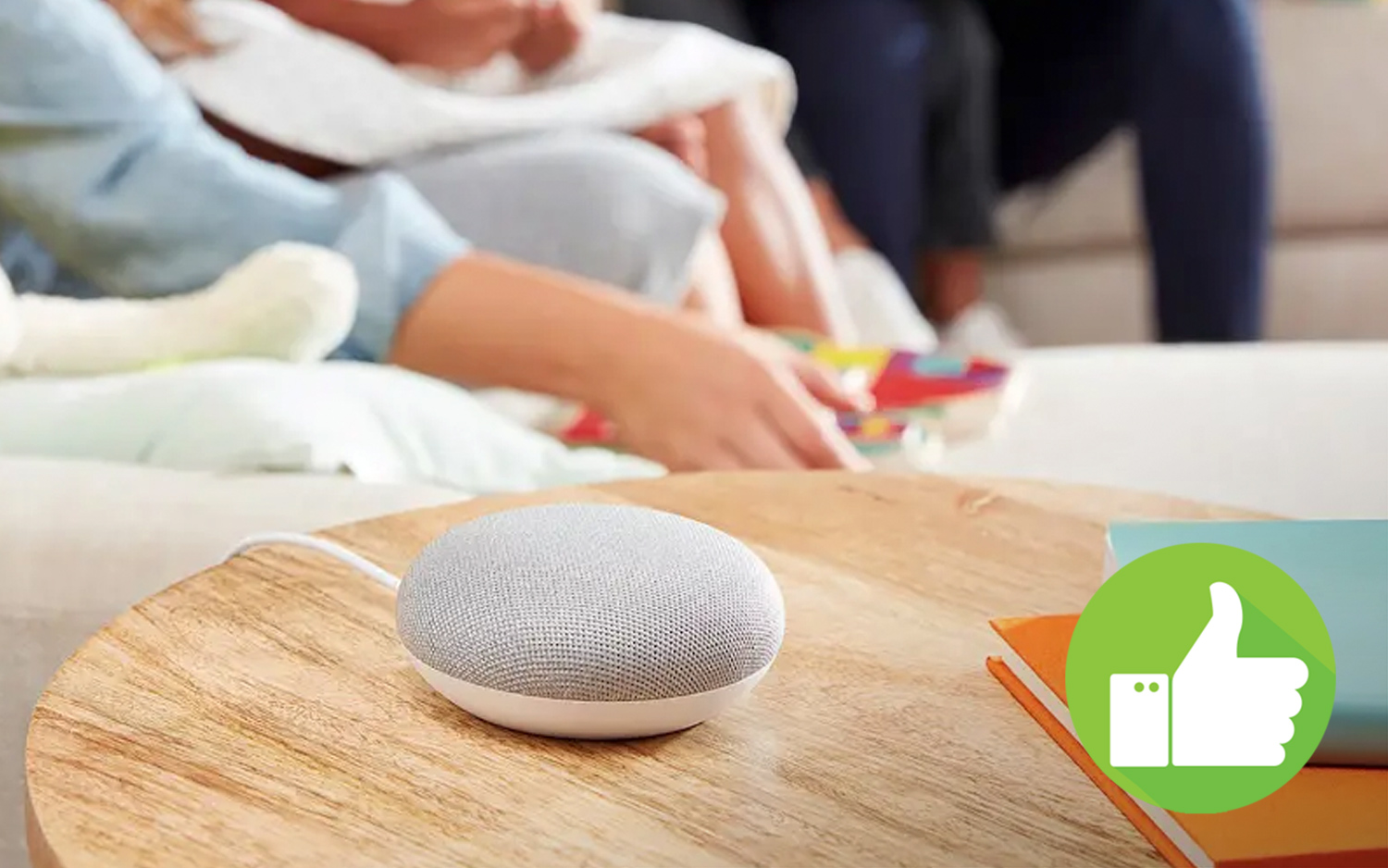
Great sound for its size
It's hard to believe that a device as small as the Home Mini could deliver a great sound, but this smart speaker gets the job done. It will do your music justice, with balanced audio and rich bass. In our head-to-head testing, its audio quality blew the Echo Dot's out of the water.
Credit: Google
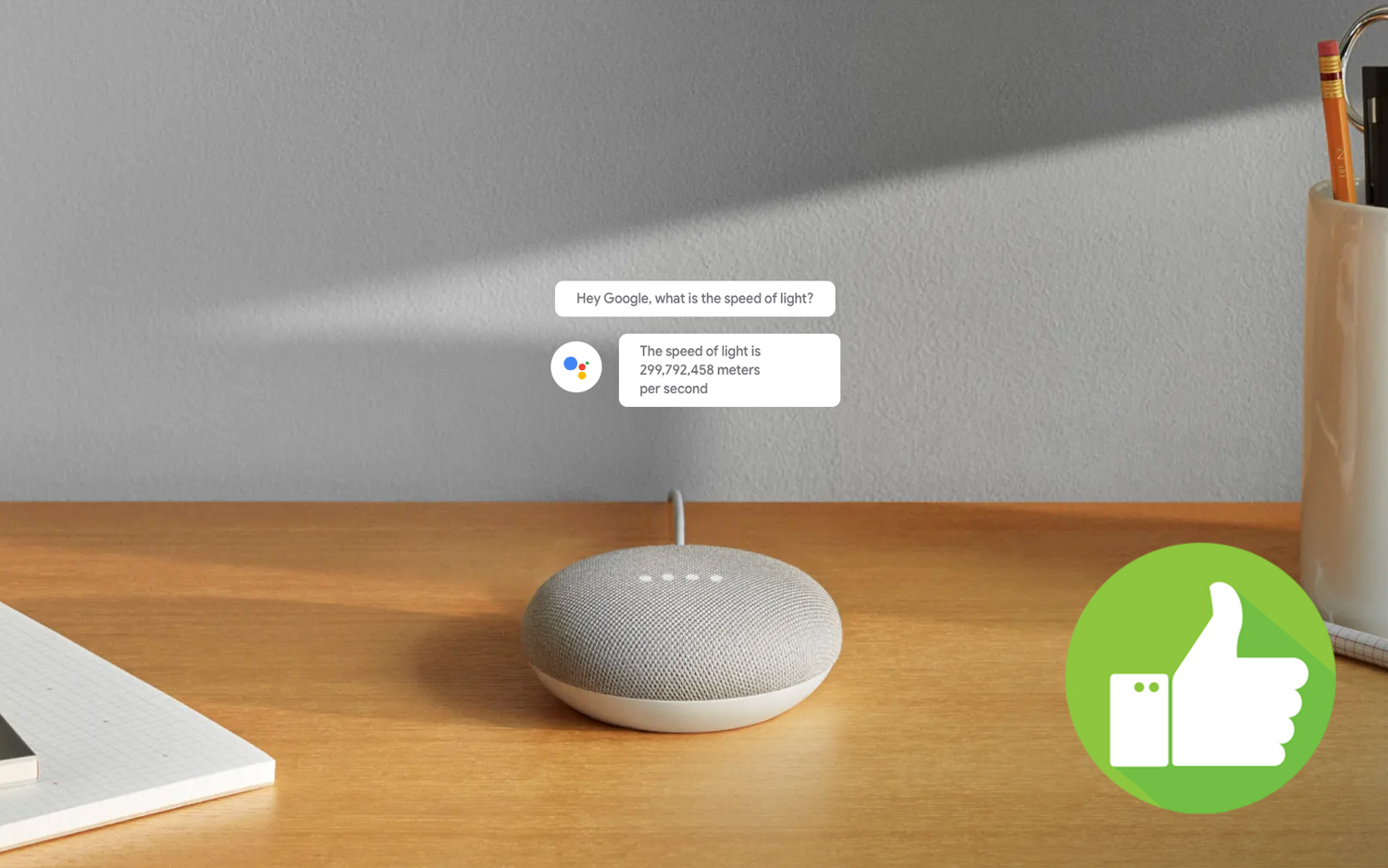
Google Assistant
Among voice assistants, Google Assistant, which powers the Home Mini, is the smartest in town. In our showdown, Google Assistant edged out Alexa overall and was especially superior when giving directions and recognizing voices. Google's Voice Match offers personalized calendars, flights, payments, photos and default media services to each family member, while Alexa offers fewer options.
Credit: Google
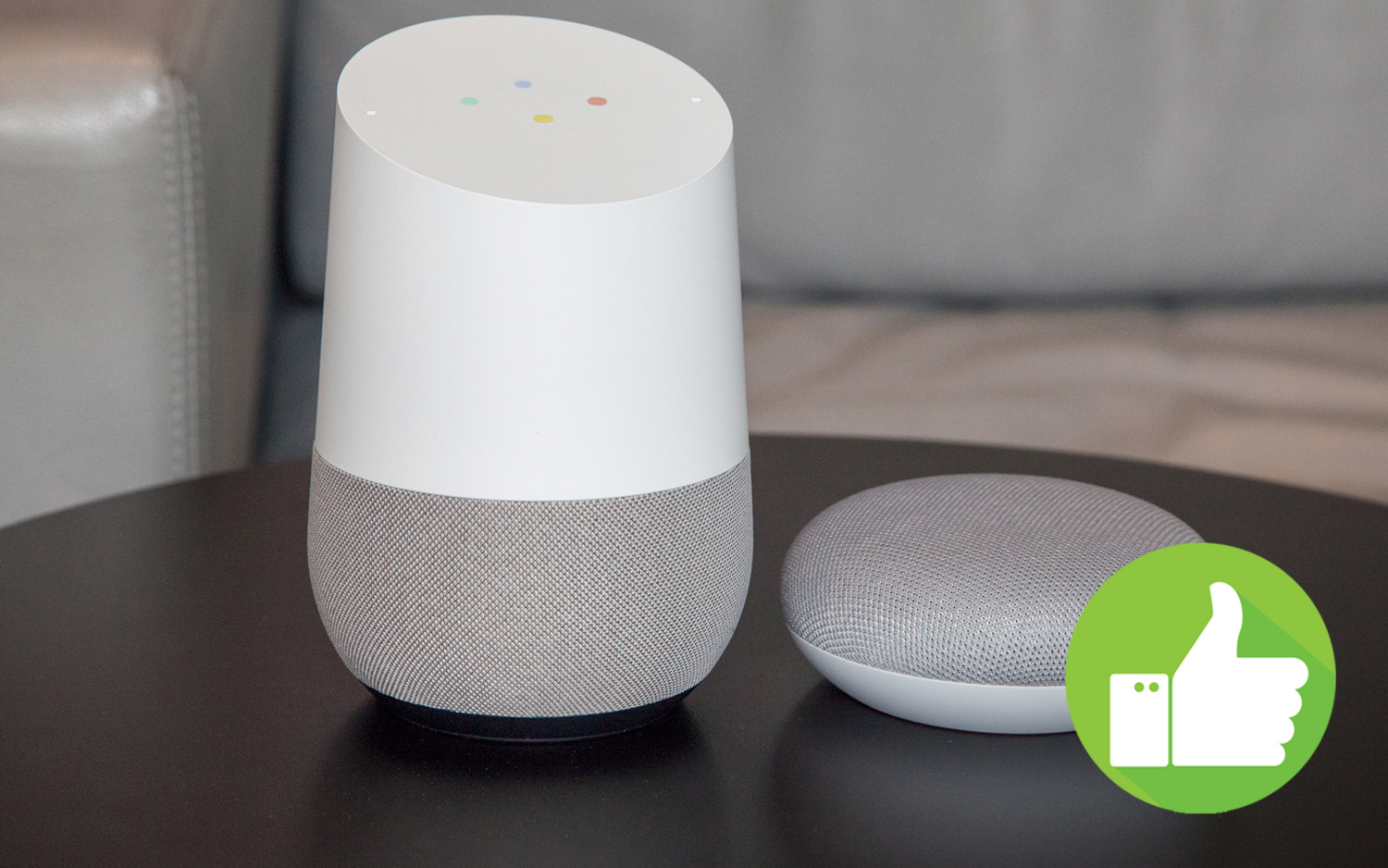
Multiple audio streaming options
The Home Mini allows you to stream audio directly from a number of sources, including the Pandora app on your phone and the Chrome browser on your laptop. Google also supports, in addition to Google Play Music, most major music services, including Spotify, Pandora, iHeartRadio and TuneIn, as well as YouTube Music.
The Home Mini can also be used to help stream video as well. You can use the Google Home app to control smart TVs that are running Android TV or plugged in to a Chromecast, and to pull up Netflix, YouTube or other content.
Credit: Tom’s Guide
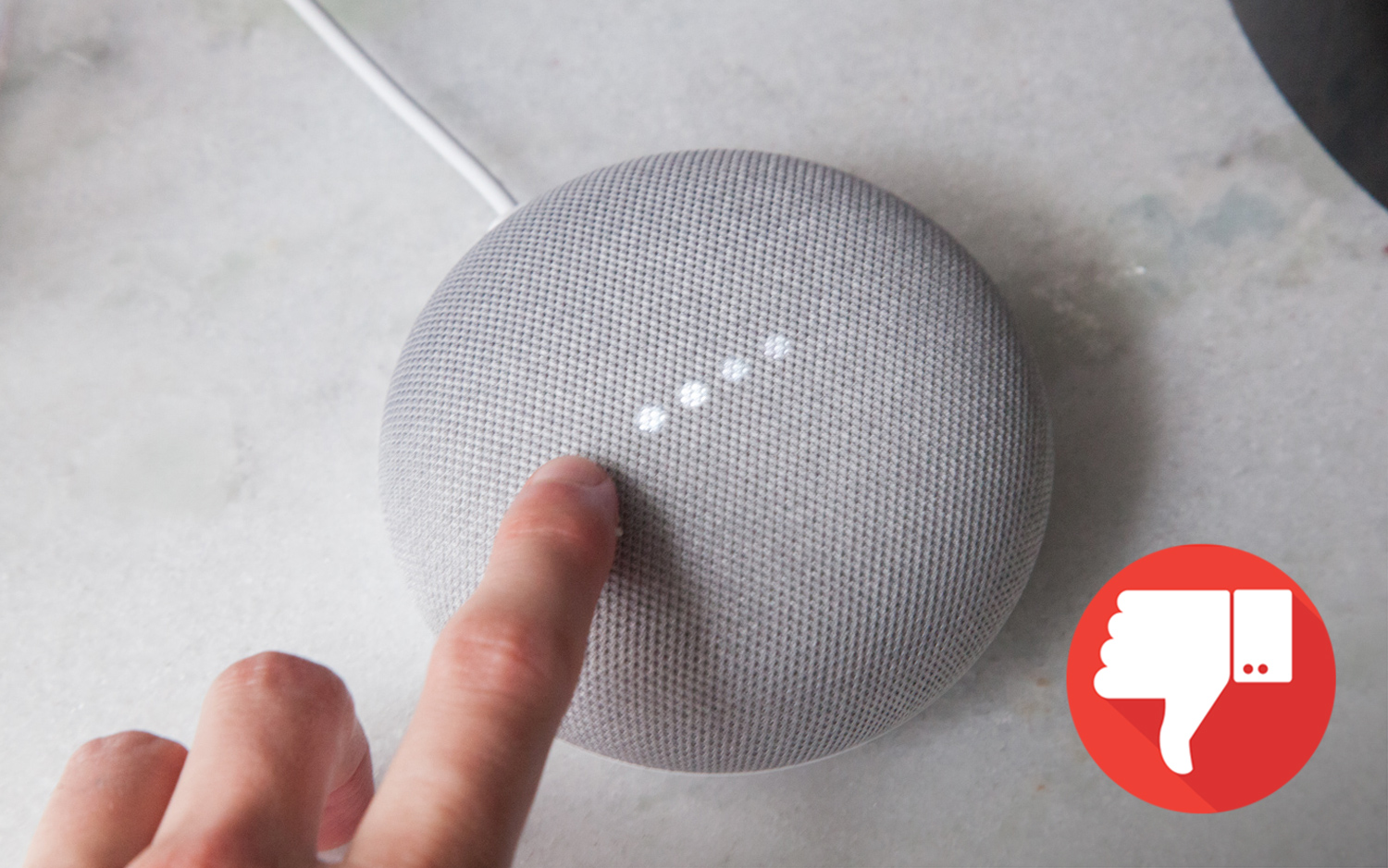
No voice indicator
The Echo Dot has a circular light that indicates when the device is listening to you, while the Home Mini just has some light-up dots that are pretty difficult to see, especially from a distance. Users who often find themselves shouting commands repeatedly at their devices from across the room may prefer the Echo Dot.
Credit: Tom’s Guide
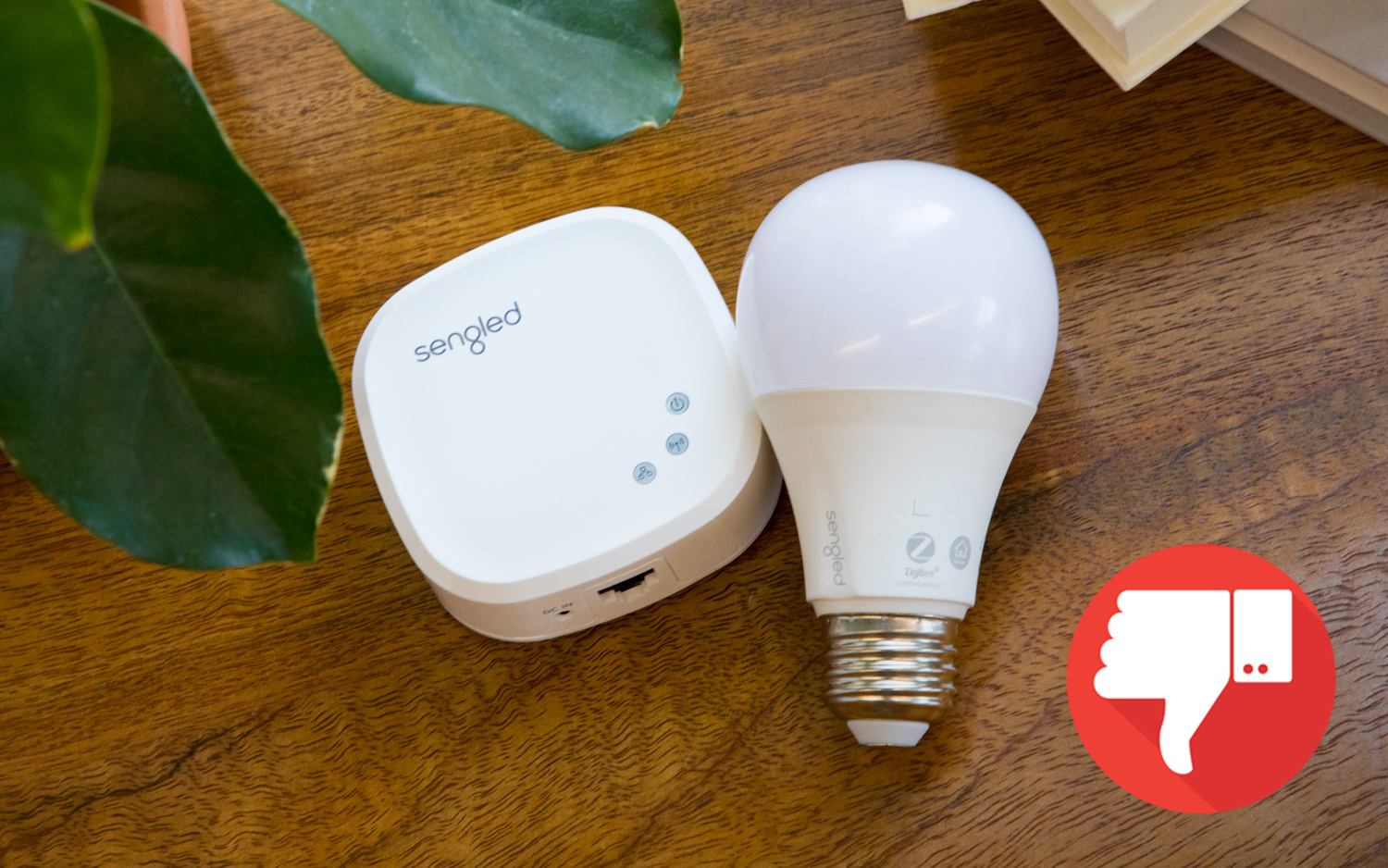
Adding smart-home devices is complicated
It's a bit more of a pain to hook up smart-home devices to the Home Mini than it is to an Echo Dot. While the Alexa app can automatically detect nearby smart-home devices in your network, connecting a device to a Google Home is a longer process that requires different steps for each smart-home service (Philips, TP-Link, Sengled, etc.) that you're using and each room you're in. That may make the Home Mini a tough sell for smart-home power users who combine products from multiple brands.
Credit: Tom’s Guide
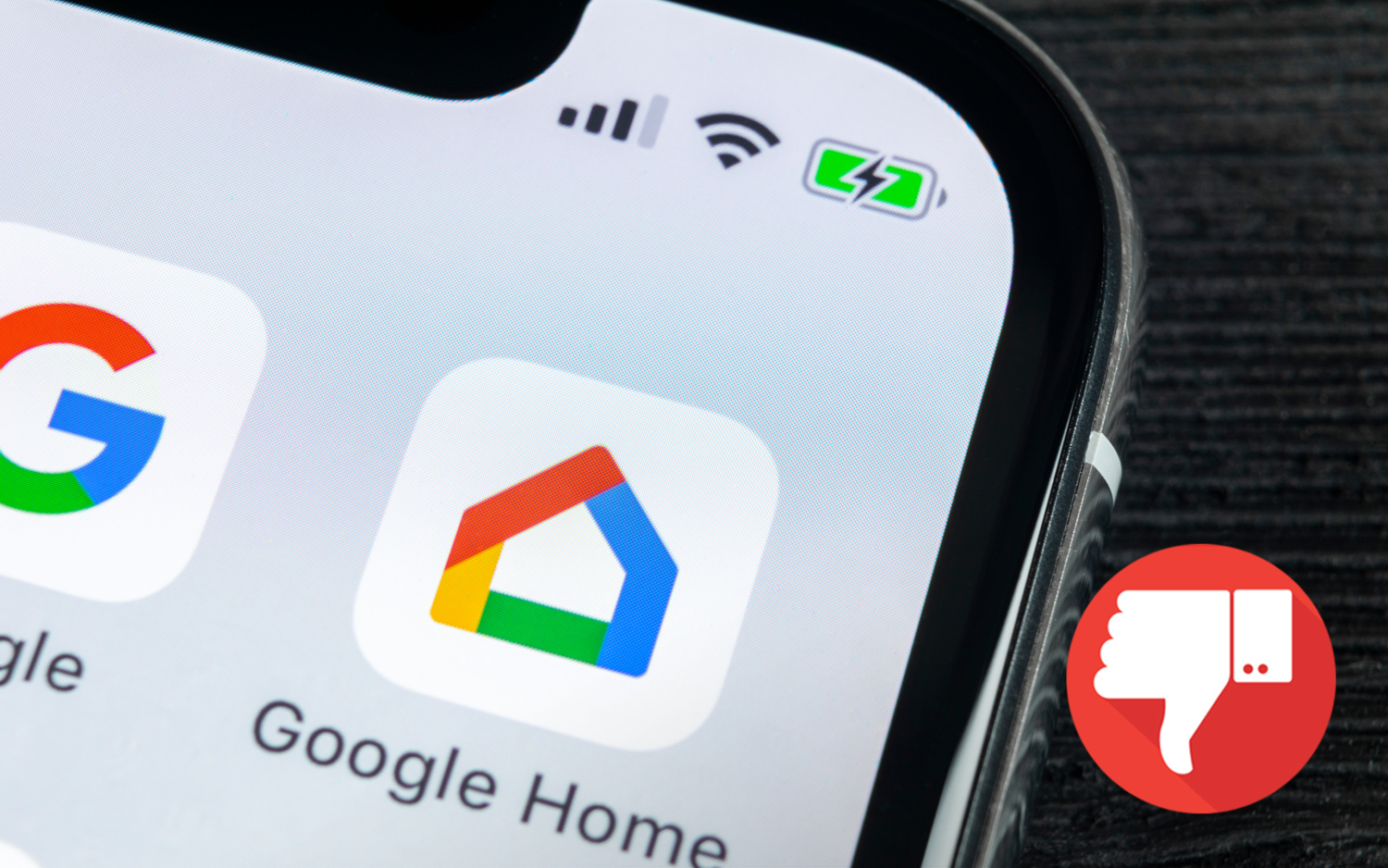
Limited third-party apps (for now)
One of the main advantages Alexa has over other smart voice assistants is the vast library of third-party Skills at users' disposal. Google Home's answer to that (called Google Home Actions) is quickly growing but is not nearly as large yet. Alexa's Skill count recently passed 15,000, while Google Assistant has almost 2,000 actions. Users who enjoy the diverse games, activities, guides and random abilities that come with an Alexa-enabled device may find the Home Mini's selection disappointing.
Credit: Shutterstock
Monica Chin is a writer at The Verge, covering computers. Previously, she was a staff writer for Tom's Guide, where she wrote about everything from artificial intelligence to social media and the internet of things to. She had a particular focus on smart home, reviewing multiple devices. In her downtime, you can usually find her at poetry slams, attempting to exercise, or yelling at people on Twitter.
-
jacksmith21006 We started with an Echo but since purchased a Google Home and then more Google Homes. The biggest difference is the Google Home is just a lot easier to interact with. The Echo is very rigid in the language you have to use. Versus the Google Home you can talk to it more like how you would talk to your wife.Reply -
mypuppymutts I have both Alexa and Google on my desk. If you do as well, try this: "Hey Google, can you talk to Alexa?" See what happens! Make sure Alexa can hear your Google talk.Reply
